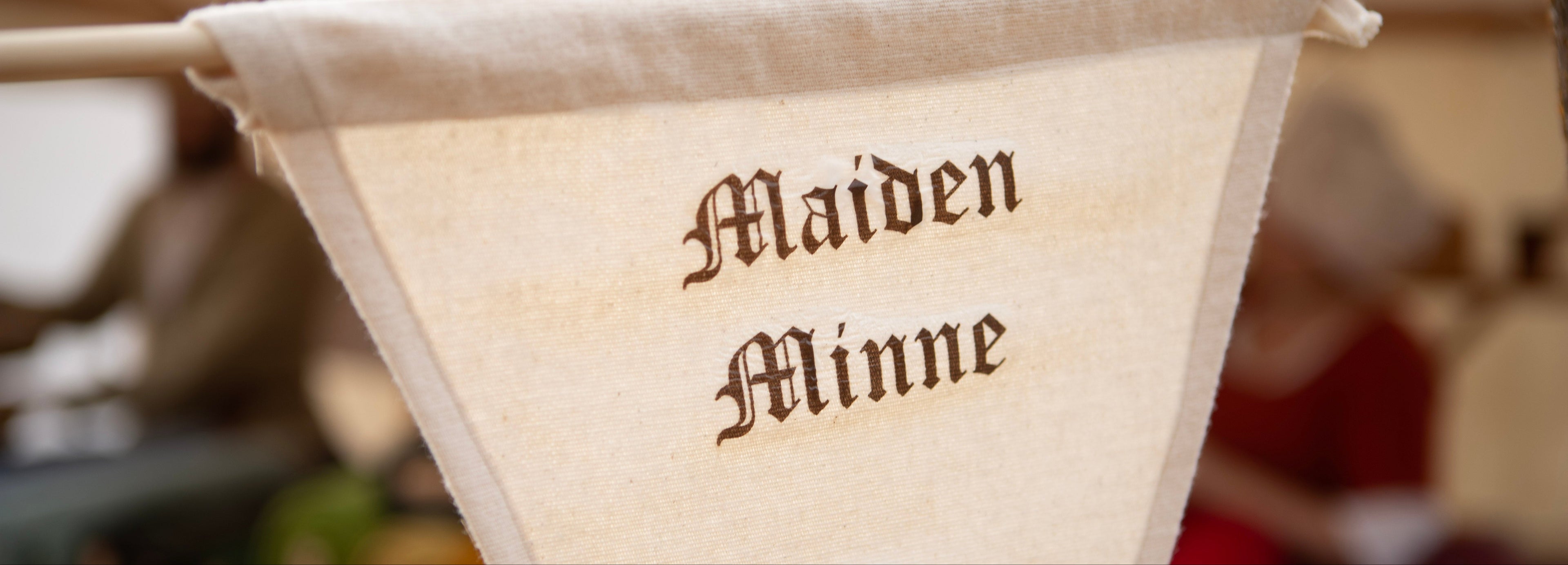
Certification of Our Materials
At Maiden Minne, the focus is on providing high-quality materials that not only enhance the authenticity of historical creations but also contribute to a responsible future. The commitment is to carefully source materials that meet strict ethical and environmental standards, including fair trade, recycled, eco-friendly, and European-made fabrics such as wool, silk and linen.
Each fabric is thoughtfully selected to ensure that your historical designs are not only true to the past but also sustainable and responsible. By working with suppliers dedicated to fair labor practices and environmentally-friendly production processes, Maiden Minne helps contribute to a better world without compromising on quality.
With the certifications, Maiden Minne guarantees that the materials offered meet the highest standards, giving you confidence in both the aesthetic and ethical value of your work. Whether you are working on historical attire or the modern fashion, the materials allow you to create something that is both authentic and contributes to a more sustainable and fair world.
 |
WoolmarkWoolmark is a globally recognized quality label for wool, representing the highest standards in purity, durability, and performance. Fabrics bearing the Woolmark label are made from 100% pure wool that meets strict quality and sustainability criteria. The label guarantees that the wool has been tested for warmth, breathability, and softness, ensuring you get a top-quality product. |
 |
Recycled WoolRecycled wool is made from woolen garments that are re-spun into yarn and woven into fabric. This process helps reduce waste and supports sustainability. It requires less energy and resources than virgin wool production Wool is one of the most recycled fibers globally because of its durability and eco-friendly qualities. Due to the manufacturing proces, the fabric can contain up to 5% other fibres. |
 |
Higg IndexThe Higg Index is a tool used to measure and improve the environmental and social impacts of products in the apparel and textile industry. It provides a standardized way of assessing the sustainability of materials, manufacturing processes, and products. This index promotes transparency and helps consumers make informed choices about the sustainability of their purchases. |
 |
Social and Labor ConvergenceThe Social and Labor Convergence Program (SLCP) aims to improve working conditions across the supply chain by unifying social and labor standards. It helps companies streamline compliance, ensuring fair labor practices, safe environments, and better wages for workers. SLCP promotes transparency and ethical practices in the textile industry. |
 |
OEKO-TEXOEKO-TEX certifies textiles free from harmful chemicals, ensuring they meet high safety and environmental standards. The OEKO-TEX Standard 100 label guarantees that products are safe for consumers and the environment. This certification is ideal for sensitive skin and promotes sustainable manufacturing practices, ensuring safety and peace of mind. |
 |
Global Recycled Standard (GRS)The Global Recycled Standard (GRS) certifies products made with recycled materials from verified sources. It promotes sustainability by reducing reliance on virgin resources and supports transparency in the supply chain. GRS helps reduce waste, encouraging a circular economy and environmentally conscious production practices. |
 |
GOTS CertificateThe Global Organic Textile Standard (GOTS) certifies textiles made from organic fibers, ensuring environmentally and socially responsible production. GOTS guarantees that products meet strict standards for organic farming, ethical labor practices, and safe working conditions. It promotes sustainability, reducing harmful environmental impacts while ensuring fair labor throughout the supply chain. |
 |
IVNIVN (Institute for Natural Textiles) certifies products made from organic and sustainable materials, promoting eco-friendly and ethical production methods. The IVN label ensures that textiles are free from harmful chemicals, made with respect for workers' rights, and produced using environmentally friendly practices. It supports a cleaner, fairer textile industry. |
